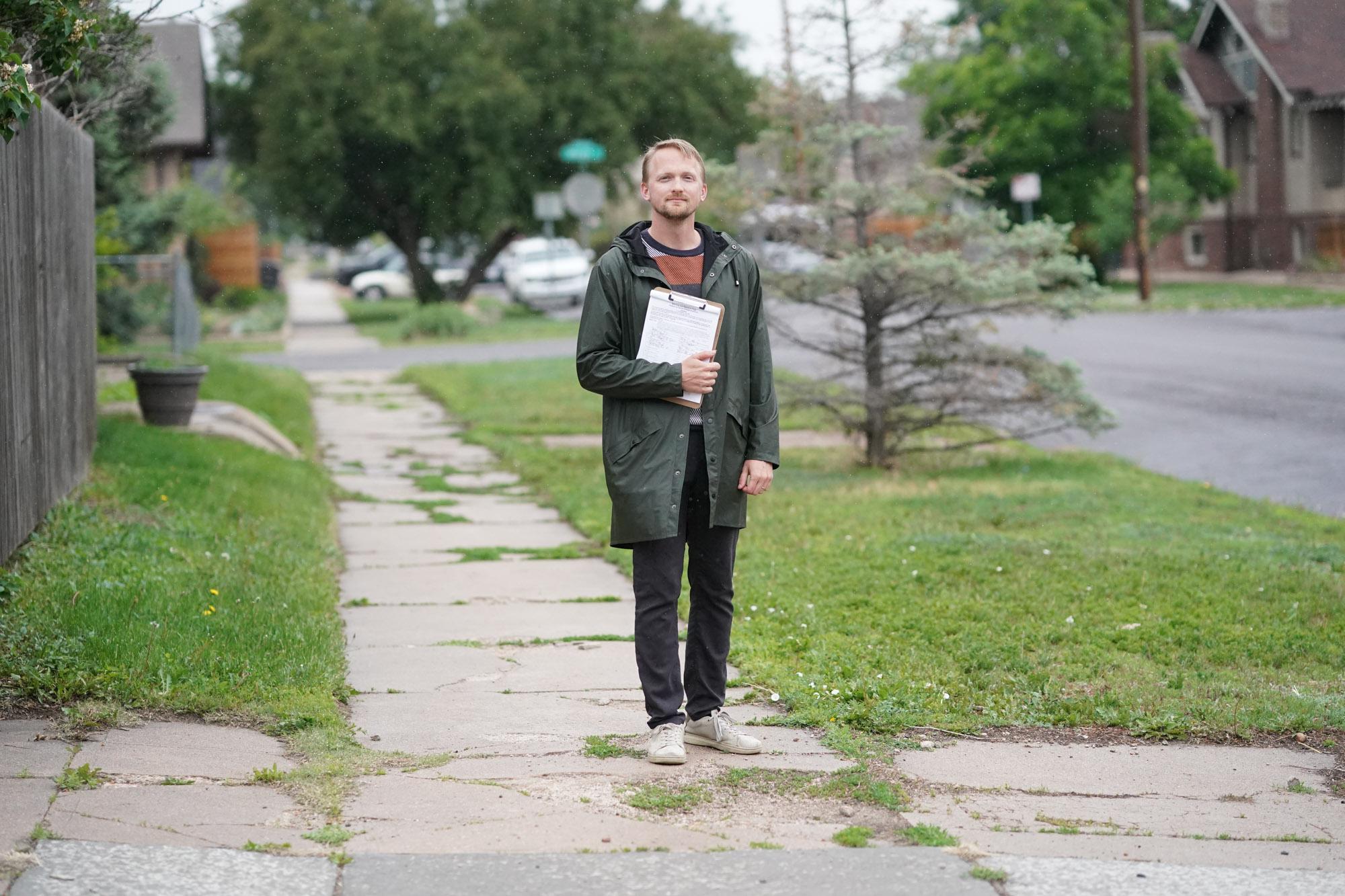Denver voters will decide this fall whether to raise hundreds of millions of dollars to build and repair sidewalks across the city.
The Denver Elections Division on Tuesday announced that the Denver Deserves Sidewalks campaign submitted enough valid signatures to make the November ballot.
"We've been waiting very patiently to see if the mayor or City Council would take action," said Jill Locantore, executive director of the Denver Streets Partnership, which sponsored the initiative. "But now the community has taken it into their own hands, gotten it on the ballot, and we'll get to decide once and for all if sidewalks are truly a priority for our city."
Locantore and other mobility advocates have grown frustrated with the city's slow progress on its efforts to repair crumbling sidewalks and fill in gaps where sidewalks are nonexistent. Forty percent of the city's streets have either missing or substandard sidewalks, the city reported in 2019. That fact, Locantore said, helped generate support for the initiative.
"Not only are people supportive, but they're really passionate and excited about this as an opportunity for our city," she said.
If passed, the measure would make the building and maintaining of sidewalks -- currently a responsibility of private property owners -- the city's problem. It would also impose new fees on property owners that would raise about $40 million a year -- enough to repair and build new sidewalks across the entire city in just nine years, Locantore said.
Those annual fees, based on how much property faces a street, would be about $110 for the owner of a typical 50-foot-wide lot. But for some property owners on large lots in more suburban areas, the fees could exceed $1,000. That's generated some opposition from City Councilman Kevin Flynn, who represents southwest Denver.
"I get the frustration of folks who think that the city is moving too slow with its program. And we are. I get that," Flynn told Denverite in June. "This, I think, may be the opposite end of that spectrum. [It] may be moving too fast and collapse of its own weight."
Locantore said that such property owners currently face a potentially huge financial liability under the existing system, as they are responsible for repairs.
"The vast majority of property owners are going to be paying a very modest fee," she said.













